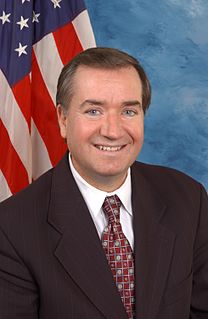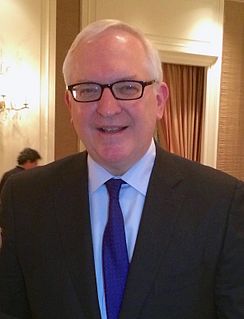A Quote by Condoleezza Rice
Now, al Qaeda's on the run. Afghanistan is no longer a base of operations. The Afghan government is a friendly government that is trying to bring democracy to its people.
Quote Topics
Related Quotes
The Afghan - obviously the parties will decide which course of action. The most important there, get a government that is seen as legitimate to the people and has the credibility to be a partner in the effort to secure Afghanistan so it's not a haven for al Qaeda or other type of terrorists or international terrorist organizations.
Some Pakistanis fought for the Taliban. Pakistani extremist groups provided infrastructural support to Al Qaeda. There was a coming and going of Al Qaeda militants and leaders between Afghanistan and Pakistan for several years. All that has really happened is that Al Qaeda has escaped from Afghanistan come into Pakistan, got in touch with their contacts and friends in these extremist groups, which then provided them with safe houses, cars, and not just in the border areas but also in the cities. Rooting out Al Qaeda in Pakistan now is where the main battle is being fought.
In terms of Iraq, al Qaeda valued Iraq because we destroyed a government it wanted destroyed and because we put soldiers on the ground and forces that they could attack. Al Qaeda is basically an insurgent organization that was formed on the model of the Afghan groups. And being bred in that war, they value a contiguous safe haven as much as anything else.
Afghanistan is where much of the al Qaeda journey began. It is the main site where Osama bin Laden, Mullah Omar and their cohort rose to prominence fighting the Soviets in the 1980s. Afghan territory holds special significance to the group, which is committed to retaking it and re-establishing it as the base of a global movement.
I mean,you will have an Afghan government. There are two roads here. One is obviously a run-off election or a negotiated settlement. But what's most important about that process is that there's a credibility and a legitimacy to the government at the end of that process. So which road they choose, that's up to them. It must have - be legitimate and credible in the eyes of the Afghan people.
There are no barriers to entries. Think of this as Linux in terms of software. Anyone can have part of the operating system so long as you pledge allegiance to the ideas. Previously, if you wanted to join al Qaeda, you had to travel to an al Qaeda safe haven, probably in northern Pakistan or Afghanistan. Now all you have to do is get a gun, choose a target, and carry out an attack.
Look what happened with regard to our invasion into Afghanistan, how we apparently intentionally let bin Laden get away. That was done by the previous administration because they knew very well that if they would capture al Qaeda, there would be no justification for an invasion in Iraq. There’s no question that the leader of the military operations of the U.S. called back our military, called them back from going after the head of al Qaeda.
When the United States first went into Afghanistan in 2001, it devastated the Taliban and Al Qaeda in a matter of weeks using only a few hundred C.I.A. and Special Operations personnel, backed by American air power. Later, when the United States transitioned to conventional Pentagon stability operations, this success was reversed.









































